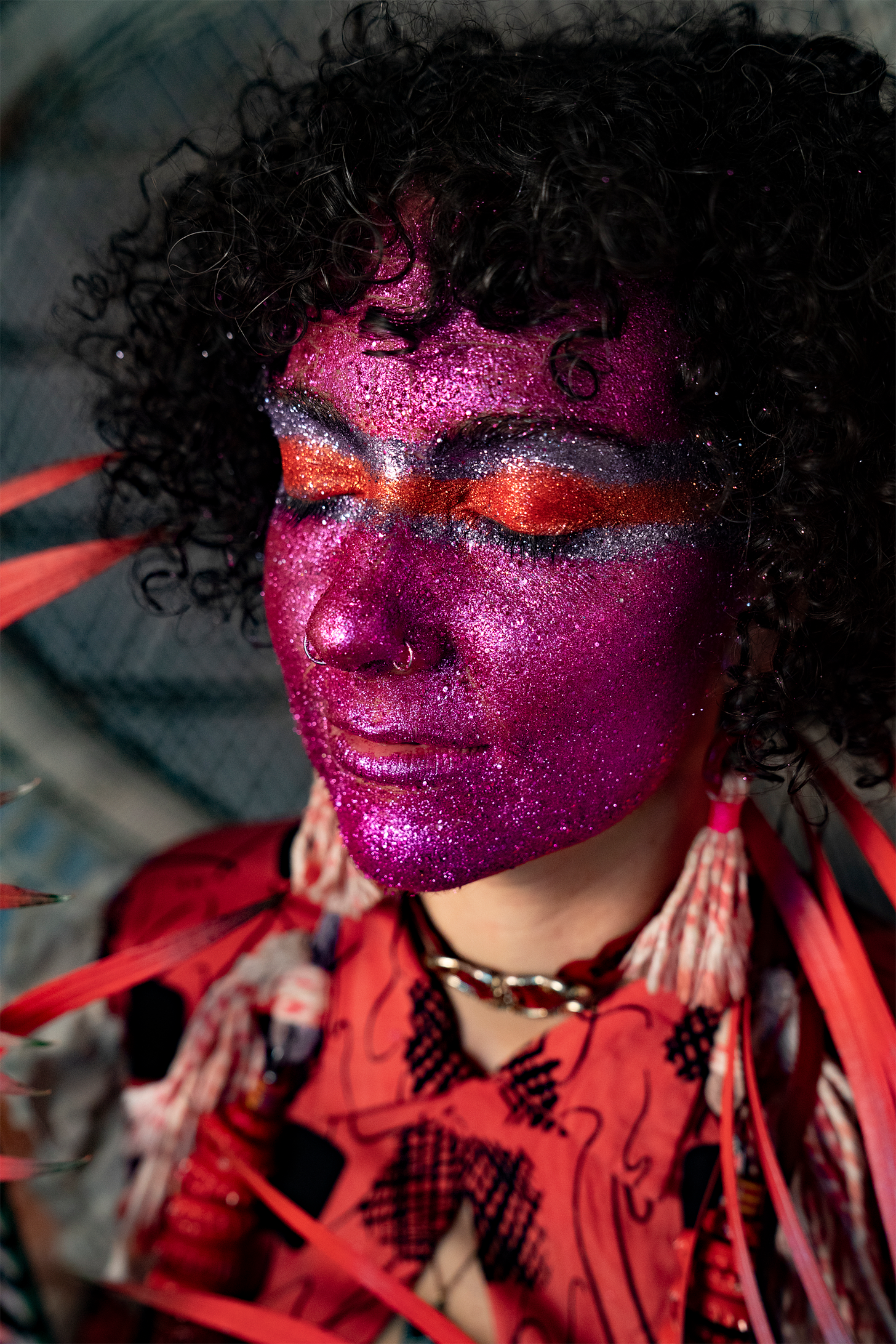My inbox is full of statements of solidarity and lists of anti-racist resources. This has never happened before—to my inbox, that is. The systems that produced this uptick, however, are longstanding. It is imperative, whether we’re new to the cause or seasoned activists, to understand racism as a historical pattern so that we can prepare ourselves for the long haul. I’m most interested in this question of endurance. How do we make the most of this moment? How do we make sure it doesn’t slip away? And how do we keep going when, inevitably, some of the protest signs shoved into windows and displayed on porches seem stale or forgotten? When people stop posting black squares on Instagram and go back to uploading photos of their pets and meals? One could argue that as these performative actions dwindle, the real work begins, but I don’t think it’s my place to criticize the pieces of cardboard with handwritten slogans, which I see as little beacons of potential commitment in unexpected places. (As for Instagram, I’m barely qualified to comment, as someone who’s taken a pretty staunch anti-social media stance.)
And yet I think of a line, for better or for worse, by Macklemore: “Are you marching for freedom, or when it’s convenient?” It is striking to see organizations that have never made a peep about Black lives abruptly start using the language of social justice and promising to change. It is hard to tell if these shifts will last, if they will be sustained. I don't think there’s a word in English for feeling hopeful and skeptical at the same time—anticipation, perhaps, but that doesn’t really capture the paradoxical mix of daring to believe in the liberation that seems to be hovering just out of sight while also watching, glumly, as corporations adopt the veneer of solidarity (see this article by Jacob Silverman), as the threat of co-optation hangs heavy, and as people, especially white people, awaken to staggering amounts of guilt and tend to flounder in the morass, myself included.
Remembering that environmental justice is racial justice, as Matt Hern and Am Johal put it: “we are all simultaneously witness, victim, and perpetrator of climate crimes.” We may experience these three roles in wildly varying proportions—and those variations have significant bearing on our quality of life—but no one is exempt from playing any one of them. Everyone is implicated in oppression; everyone suffers under its reign; but the moment demands very different actions from different kinds of people.
Below you’ll find what is technically a list of links, compiled, as ever, with the hope of pinning down a constellation on your behalf (that’s what an essay is, after all.)

Photo of PussyPowerHouse founder Corinne Loperfido via BIOGLITZ
Glitter is technically a pollutant when it’s made from plastic or metal (i.e. most of the time), a sad fact that I tend to ignore in service of my love for sparkles. Enter BioGlitz, a company that makes biodegradable, shiny-as-hell glitter (see above) from eucalyptus. This is really exciting, team.
Here are three books that I haven’t seen so much on recommendation lists but that I think are worth the time and deserve more attention:
Our History is the Future: Standing Rock Versus the Dakota Access Pipeline, and the Long Tradition of Indigenous Resistance by Nick Estes - remember, Christopher Columbus didn’t find anything.* This book is a phenomenal scholarly effort, but the prose isn’t fibrously academic. A powerful antidote to probably everything you learned in K-12 American history lessons.
Tell Me How It Ends: An Essay in 40 Questions by Valeria Luiselli - an unflinching exploration of immigration to this country. It’s short, beautiful, and brutal.
Why I’m No Longer Talking to White People About Race by Reni Eddo-Lodge - this one illuminates the specifics of racism in Britain (I, for one, didn’t know that the Brits were slaveowners, too, though I guess I shouldn’t have been surprised, what with the insatiable imperialism spanning four centuries.) The chapter about white feminism is especially illuminating.
*As Rachel Cargle said at this winter’s Black Solidarity Summit Keynote here at UM.

In 2016, AJ Andrews became the first woman to win a Rawlings Gold Glove, 59 years after the annual award came into existence. Andrews is a phenomenal fielder, specializing in diving catches, though my personal favorite from her highlight reel is a catch where she literally knocks over a wall for a ball. That catch also inspired the title of “Knocking Down The Fences,” a twelve-minute documentary (available for free via PBS—watch here) about her unparalleled excellence and the difficulties that female professional athletes face, even when they’re world-class competitors.
Three podcasts (don’t worry, they’re specific episodes, not entire new pastimes.)
If you’re feeling uncomfortable about being white, listen to this episode of Ten Percent Happier, featuring Eleanor Hancock. She validates those feelings and explains how they reinforce racism; she also elucidates some of the weirdness of ‘woke’ culture and how racism is inextricable from capitalism; and she offers a great example of allyship as far as I can tell (while also having the wherewithal not to describe herself that way). She tells it straight and with great compassion.
One of Radiolab’s reporters, Latif Nasser, spent most of his life thinking he was the only person in the U.S. with his name. Then he discovered that he shares it with a detainee in Guantanamo Bay. His subsequent efforts to unravel the story of this man, despite significant obfuscation, resulted in Radiolab’s gripping short series called “The Other Latif.”
“Tell Christy I Love Her,” an episode of Ear Hustle, explores the current friendship between Tom, a white cop, and Jason, a black man who shot Tom several times in 1997. Given his and Jason’s training, Tom believes that their violent encounter was “inevitable.”
“Unless someone is going to stab you for what you’re going to say, you’re not going to be hurt. Also, white people tend to have way better health insurance anyway.”
-Rachel Cargle
I’ve decided to switch from Bank of America to OneUnited Bank, the largest Black-owned bank in the United States. Last year Bank of America divested from funding private prisons and detention centers, but they remain a major fossil fuel financier. (I’m also a big fan of credit unions, and recommend Clearwater Credit Union for any Missoula residents, but it’s nice to have access to a national bank, too.) OneUnited is a ‘community development financial institution,’ meaning they focus on working with lower-income, underserved communities. They’re also an internet bank, so the interest is higher. Another one worth considering for its justice priorities is Amalgamated Bank, the largest union-owned bank in the U.S. They do not lend to fossil fuel companies.
Tiny disclaimer: I am not a financial advisor. My only credential here is that I completed Homeword’s Financial Fitness class last summer (it’s free! I would include a link, but they’re not offering courses of late.)
I haven’t forgotten about coronavirus. It is difficult not to talk about it, especially because it no longer seems like the outside world shares my level of concern, even though pandemic is. still. happening. But this article (from a therapist’s blog) about dealing with feeling overwhelmed during pandemic made me feel slightly better. It also makes me feel better to share with you that osha root tincture, emerging from herbal medicine of the American Southwest, can help with respiratory illnesses, like bronchitis, infection, or sore throats. If you have asthma or lung problems, it could be worth getting a bottle. (Just one though—no hoarding!) And finally, rubbing oil on your feet before bed may help you sleep better. You can go whole hog with abhyanga (Ayurvedic oil massage) by warming up a fancy oil based on the dosha you wish to stimulate; or you can just knead whatever oil or lotion you have available into your soles. It’s very soothing. And this is the balance we must try to strike—to learn how to engage with the suffering in the world without losing ourselves in the process. To steel ourselves—oiling your body could be a kind of armor—for the long road ahead.


